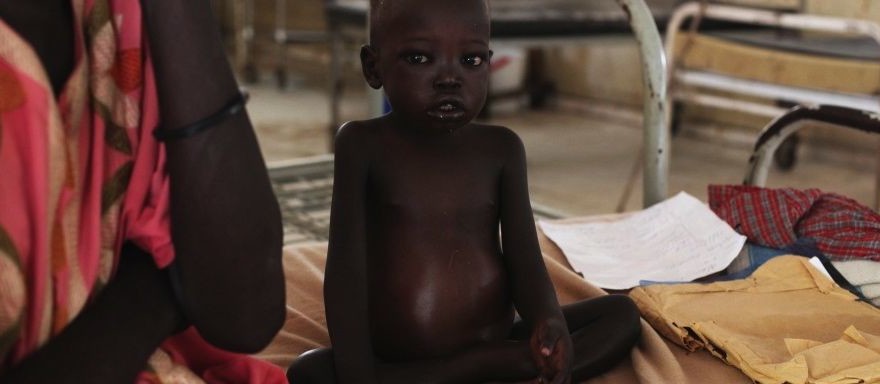The humanitarian crisis in South Sudan is too big for aid agencies to cope with under current funding levels, multiple UN organizations announced today.
WFP and UNHCR, in a joint press release, said “continued conflict, combined with the onset of the rainy season has made it difficult to reach many people in need. The relief effort has been further hampered by a severe lack of funds.”
Under the South Sudan Crisis Response Plan, which covers January to June 2014, there is a $887 million shortfall in funding, or about 70 percent of the plan.
Of this amount, the ‘bare minimum’ that agencies say they need to prevent a ‘catastrophic’ worsening of the situation is $232 million for the next three months.
Relief efforts in South Sudan are made expensive by the lack of roads and communications infrastructure, as well as a hostile regulatory environment, crime, insecurity and the sheer remoteness of many of the locations where agencies need to work.
Massive looting of aid supplies in December and January set back the aid operation significantly. WFP said that warehouses were looted in Bentiu, Malakal, Bor and other areas.
Much of the needed funding will go toward replacing stocks of food and medicines that were destroyed in the conflict, as well as covering gaps created by destruction of the livelihoods systems and health care systems.
According to the aid coordination agency OCHA, more than 90 per cent of those displaced in the country are in open or rural settings, without food, clean water or shelter. “Without enough food to eat, malnutrition is on the rise. Resources raised now will focus on these extremely vulnerable communities,” the agency announced today.
Toby Lanzer, the UN Humanitarian Coordinator for South Sudan said, “If donor funding is not made available now, we will be unable to meet the most basic needs to keep people alive or prevent a catastrophic decline in food security for millions of people at risk later in the year.”
“I invite donors to come forward with the money needed now so that aid agencies have the means to help prevent an even greater tragedy from unfolding in early 2015,” he said.
Photo: A South Sudanese child with dysentery sits on a hospital bed in Bor, 15 March 2014 (Reuters/Andreea Campeanu)



